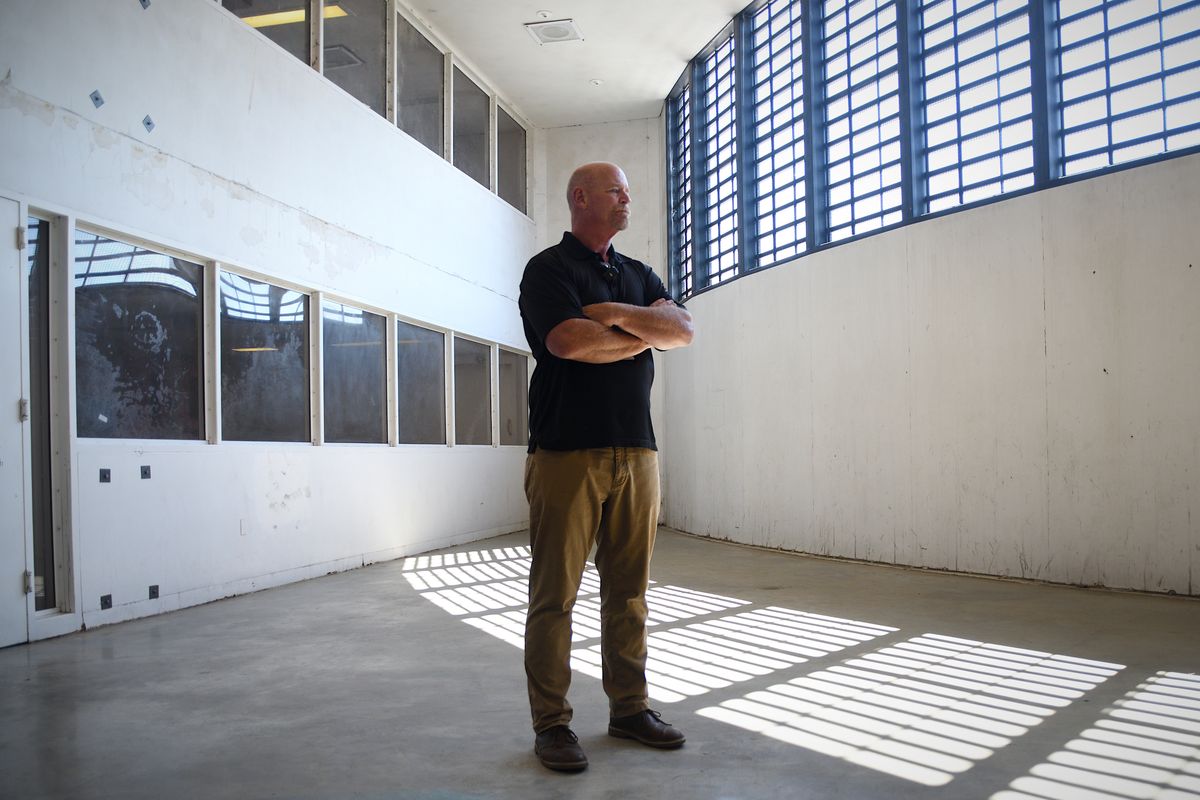Are Spokane County voters willing to tax themselves for a new jail?

For well over a decade, politicians, activists, sheriffs, lawyers vand anyone with any interest in criminal justice have been arguing about whether Spokane County needs a new jail.
Advocates for a new jail, who tend to lean conservative, say Spokane County needs more detention capacity to keep the public safe. They say that the jail is overcrowded, dangerous and plagued by deaths and suicides. Spokane County’s population has grown by 200,000 since the current jail opened in the mid-1980s, they stress, and more beds are needed to keep pace with the region’s growth.
“When people commit crimes in our communities they have to be held accountable,” Spokane County Sheriff John Nowels said in August.
Opponents of a new jail, who tend to be more progressive, often argue that locking more people away won’t improve public safety. Instead of focusing on building more jail beds, they say, Spokane County should place a greater emphasis on helping offenders resolve mental health or addiction issues. Criminal justice reform advocates say the county should be reimagining its criminal justice system, which disproportionately impacts the poor and people of color.
“True safety does not mean a bigger jail,” said Kurtis Robinson, president of the Spokane NAACP and executive director of I Did the Time. “True safety means healthier communities.”
Arguments for and against a new jail have changed relatively little over the years, but the debate has taken on new significance in the run-up to the November election.
Voters this fall will decide if they’re willing to tax themselves to pay for two new jails and other public safety improvements.
A 0.2% sales tax proposal, known as Measure 1, will appear on the general election ballot. If voters approve it, the tax will raise an estimated $1.7 billion over the next 30 years.
Here’s how the tax would work.
Sales tax splits
Per state law, 60% of the money brought in by Measure 1 would go to Spokane County and the remaining 40% would be distributed to municipalities on a per capita basis.
In effect, about $1.05 billion would go to the county, $405 million to Spokane and $188 million to Spokane Valley. The region’s smaller cities and towns would receive proportionate, but far smaller, shares.
Local governments would have significant leeway in how they could spend their newfound sales tax dollars. State law only mandates that the money be spent on efforts connected to criminal justice, public safety and behavioral health – an umbrella term used when referring to the treatment of mental health and substance use disorders.
It isn’t yet clear how the majority of the $1.7 billion would be spent, but Spokane County has a plan for about half of its share.
If Measure 1 passes, the county will build two new jails, right next to the current jail. Those facilities would cost $305 million, although the true price tag would likely be closer to $540 million due to interest payments on loans.
One of the new jails would be five stories tall, with capacity for 768 to 896 inmates.
The other would be a lower-security facility, referred to as a community corrections center, with room for 128 inmates. It would replace Geiger Corrections Center, located near Airway Heights and include classroom space.
Inmates who never graduated from high school could take GED classes and receive the equivalent of a diploma while behind bars. The county could also offer various types of programs, such as job training or addiction and mental health counseling.
The current jail would remain open, but the number of inmates housed there would decrease from the 560 range to 462 – the original intended capacity for the building.
If voters approve Measure 1, Spokane County would gain about 400 new jail beds.
The pros and cons
At least among politicians, the jail debate breaks down relatively cleanly along liberal-conservative lines.
Republican politicians mostly say a new jail is desperately needed; Democrats agree the jail is overcrowded but say the region’s public safety priorities shouldn’t be so incarceration-centric.
Spokane County Commissioner Josh Kerns, a Republican who represents the northern portion of Spokane County, has consistently voted against tax increases during his time in county government. He supports Measure 1, however, and believes it’s essential for public safety.
For the better part of a year, Kerns has repeatedly hammered home the point that Measure 1 won’t exclusively pay for new jails. Even jail opponents should consider supporting it, he says, because the tax revenue could be spent on a wide range of improvements to the criminal justice system.
Kerns said the 0.2% sales tax money could pay for more police officers, court rooms and crisis facilities for individuals battling addiction or mental health problems.
“It really is an overhaul of the criminal justice system as a whole,” he said. “It’s not just a jail.”
County Commissioner Chris Jordan, a Democrat who represents about half of the city of Spokane, opposes Measure 1.
Spokane County may need more jail capacity in the future, Jordan said. But he questions whether the county needs to add 400 beds. He said a third-party expert should be hired to estimate how many new jail beds the county needs.
Jordan’s biggest issue with the 0.2% sales tax is that no one knows for sure how $1.2 billion of it will be spent. He called Measure 1 “the definition of a blank check.”
“Voters deserve to know what they’re buying for $1.7 billion,” he said.
Kerns said he feels that Spokane County has been transparent about how it plans to use its portion of the sales tax revenue. The county commissioners can’t tell elected representatives in Spokane or Spokane Valley how to spend their shares of the funds, he said.
“It comes down to folks making sure that you’re voting for people that you can trust with those tax dollars,” he said.